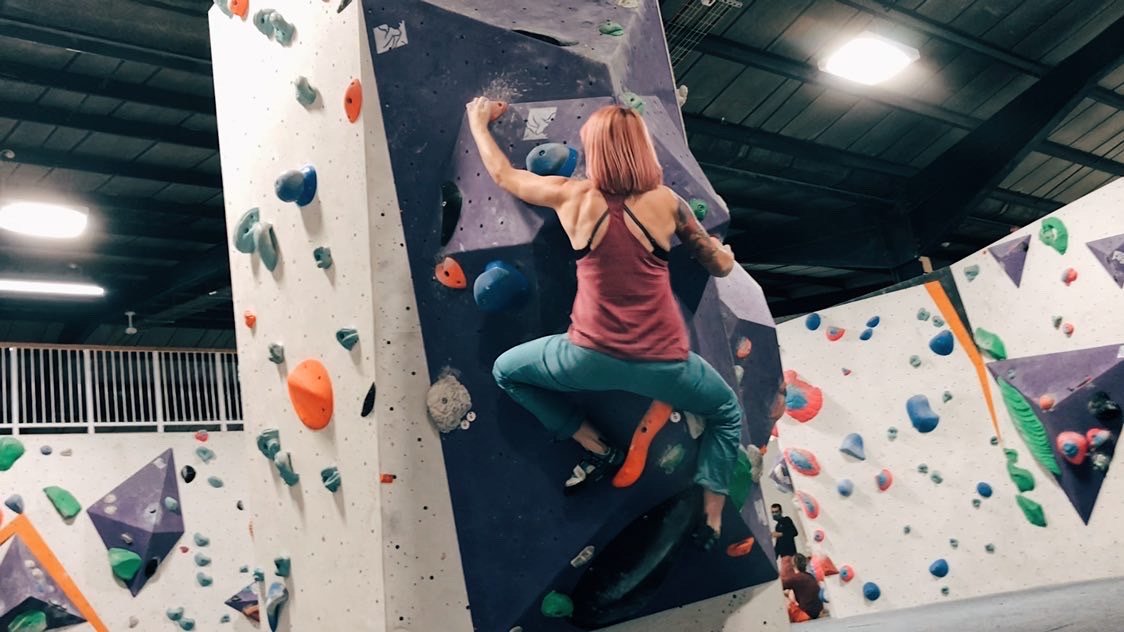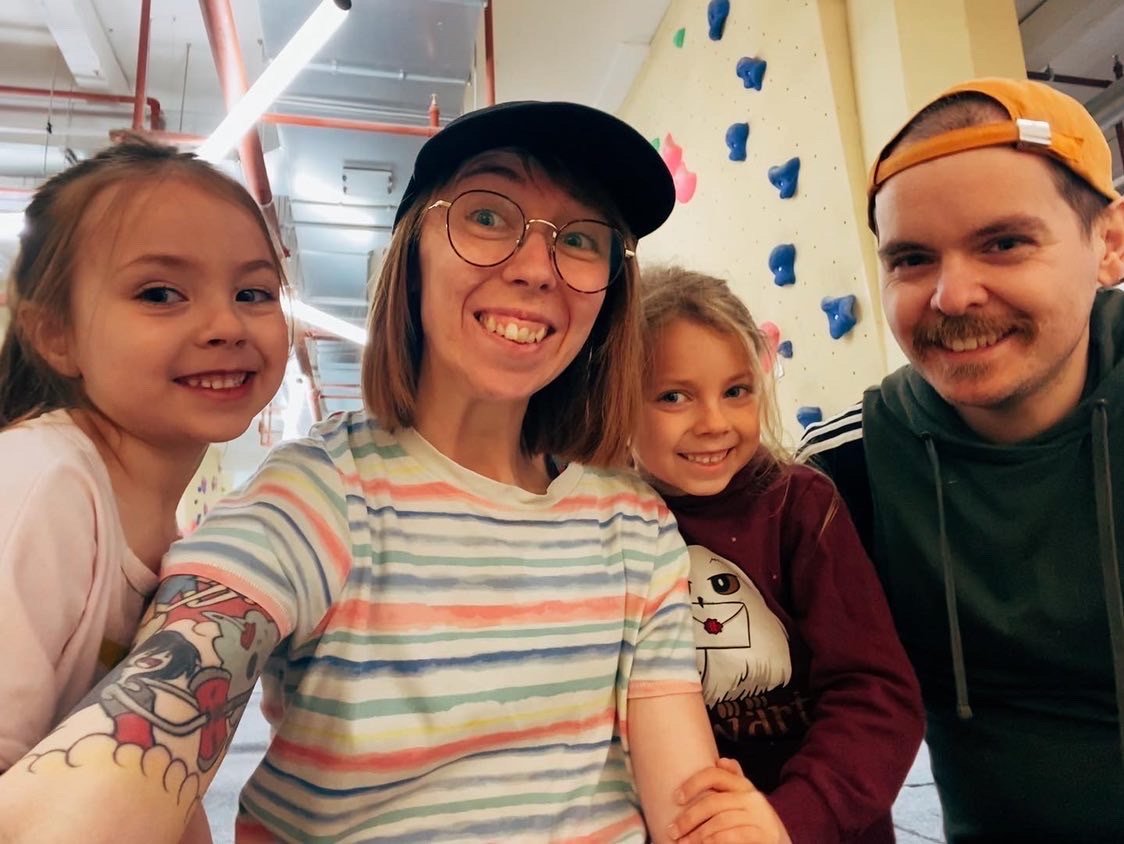Disordered Eating, Midwifery and Learning to Climb with Jessie Codling
Crux – noun
The most challenging move or sequence of moves on a climb.
Climbing a route gives a feeling of achievement, accomplishing something that you didn’t think was possible. When life has provided you with a torrent of setbacks, this feeling is invaluable.
I discovered bouldering in 2020 as the UK was slowly lifting the restrictions on gyms and activity centres. I convinced my friend to come along with me; we rented some climbing shoes and got ourselves straight onto the wall. Climbing felt like it came naturally to me, and I guess that makes sense from an evolutionary point of view. Fish swim. Birds fly. Apes climb.
We will come back to climbing later.
When Disordered Eating First Started
Disordered eating has influenced my life in some way since I was 21 (2013). Exercise would “allow” me to eat, then I would eat, feel guilty and subsequently punish myself with exercise. It’s a vicious cycle that has varied in intensity throughout the last 9 years. Many life events have happened over this time. I applied to the army reserves. I fell pregnant (after 2 years of amenorrhea, I didn’t think this was even possible).
I reapplied to the army reserves and got in, then I fell pregnant again. I completed an access course to get the grades for university. I studied Midwifery, during which my relationship broke down (they call it the divorce degree). Qualified as a midwife with 1st class honours and then started working as an NHS midwife.
Throughout this time, the anorexic behaviours would come and go, and looking back this isn’t a surprise. I have never let myself stop. There was always the next goalpost. I was never satisfied with what I had achieved up until that point. Restriction throughout that time helped to numb the bigger picture; I couldn’t stop to reflect on what I’d accomplished already.
I had landed my first job as a midwife; both of my children were at school and I was now in a new relationship. The pinnacle moment finally came when I finally felt I had too much to lose. It was time to fight for real recovery.
Therapy started and with this came a closer look at my daily routines around exercise. I had to ditch the exercise bike as it was too focused on numbers. I had to stop walking for a minimum number of hours a day. Removing these habits left a chunk of time that could be used for healthier activities. It had been a while since I had been climbing and this felt like the most natural activity for me to fill that time. Some would argue that swapping exercise for exercise isn’t really changing anything, but it's the intention behind the movement that is different.
I am someone whose brain feels like it’s running through multiple thoughts constantly and very rarely switches off. I found that whilst I was on the wall, solving a problem, there was this moment of calmness. I could be white-knuckling my way to the top, heart pumping 120bpm but my head would still be clear. The calmness I get from climbing is similar to when I am restricting but the most important difference between the two is that when I climb, I am present. I am connecting with my body instead of disconnecting and seeking that sensation of numbness. During difficult weeks in recovery, climbing has given me the space to focus that anxious energy into something productive. Although I have a way to go in my relationship with food, I feel that the connection and appreciation for my body is so much stronger now, thanks to climbing.
Now I Want to Share What Has Helped Me
For a while, I have been ruminating over the idea of a mental health support group centred around climbing. This was when the idea of The Crux Club started. I wanted to create a space in my local community for people to meet others, and feel safe to discuss anything with others who have been there themselves. The club would offer a non-judgemental space to talk (or not talk) and I hope to get some volunteers on board so that I can set up a peer-support system where members can motivate and check in with each other. I hope that through climbing, people can develop a positive relationship with exercise and a respect for what their bodies can do.
Climbing is for everyone, no matter their age, sex, gender, race, size or ability. The only competition is with yourself. Comparison is the thief of joy and someone else’s progress does not make yours any less valid. If you don’t send that climb? No worries. Dust yourself off. Have a rest and then come back to it again with a different approach. Transfer that same skillset to setbacks in daily life and you will find you’ve developed a level of resilience and confidence you did not know was there.
CONNECT WITH JESS
The Crux Club is still in its early stages, if you would like to get involved as a volunteer or when we are up and running, share your climbing tips as a Climbing Guru then please do get in touch!


